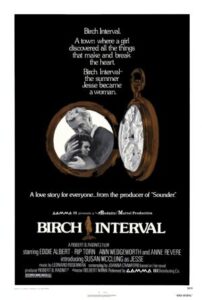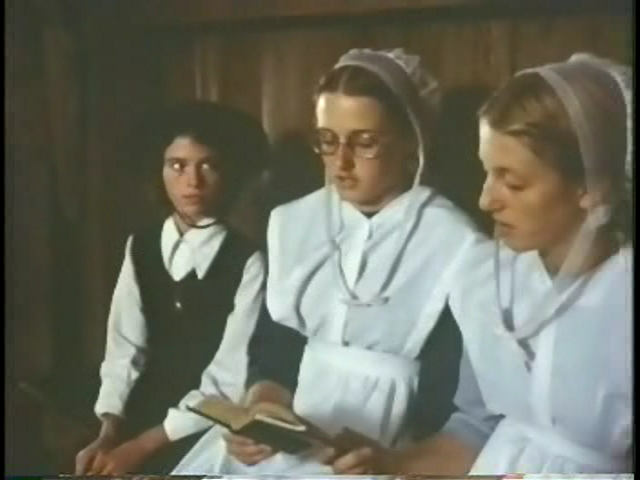“Something that’s measured is never lost — you know that, don’t you?”
|

Synopsis:
A fatherless girl named Jesse (Susan McClung) goes to live with her cousins in Pennsylvania Amish country, and learns that the local townsfolk believe her beloved uncle (Rip Torn) is mentally disturbed.
|
|
Genres, Themes, Actors, and Directors:
- Coming of Age
- Eddie Albert Films
- Mental Illness
- Rip Torn Films
- Small Town America
Review:
Birch Interval (the film’s odd title is never explained) received scathing reviews from the New York Times upon its release, with director Delbert Mann lambasted for wallowing in “excess, self-indulgence and bathos”, and the film as a whole labeled “what the word ‘icky’ has been waiting for all its life.” These criticisms are ultimately far too harsh, however: while it does dip into a made-for-TV sensibility at times, and the overall arc of the narrative flits around rather unevenly to various vignettes (a local “witch”, a near-rape) without giving them their due, Mann’s overall intention — telling a coming-of-age story, with all its inevitable stickiness and melodrama — remains a worthy one. Especially enjoyable are Rip Torn and Eddie Albert, who turn in fine performances as Jesse’s disturbed uncle and concerned great-uncle respectively; and Mann’s nearly ethnographic filming of the local Amish community (particularly a church session), which was likely fascinating for audiences at the time.
Redeeming Qualities and Moments:
- Rip Torn as Jesse’s Uncle Thomas

- Eddie Albert as “Pa”

- A documentary-like glimpse at a Pennsylvania Amish community

Must See?
No, but fans of coming-of-age tales will likely be curious to check it out. Listed as a Sleeper in the back of Peary’s book.
Links:
|
One thought on “Birch Interval (1976)”
First viewing. Not a must.
A rather forgotten film, the tone of which seems to owe much to the memory stories of Truman Capote – and, yes, what the h does that title mean?!
The film’s main problem is (as noted) focus; its episodic nature – always a tricky structure – runs away with itself.
Director Mann was very good with this kind of material. Here he had what seems a low budget. But he also had a few seasoned pros for his leads, as well as the dependable Anne Revere (in her last film role) as ‘the witch’. The end result, while not boring, doesn’t particularly leave you thinking about it.
However – the scene showing the overtly sexual bullying by young boys is shocking here. And we get a more naturalistic view of the Amish than seen in Peter Weir’s ‘Witness’.
Torn gets the best line: “Two loners together are different than a pair of ordinary friends. They respect each other.”